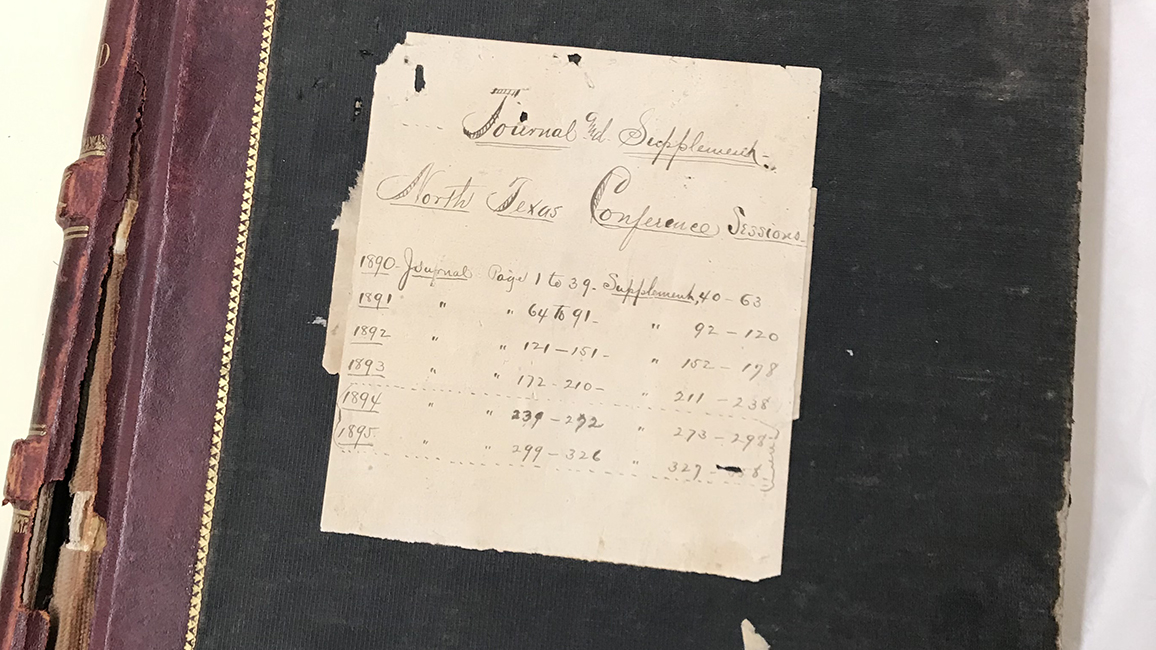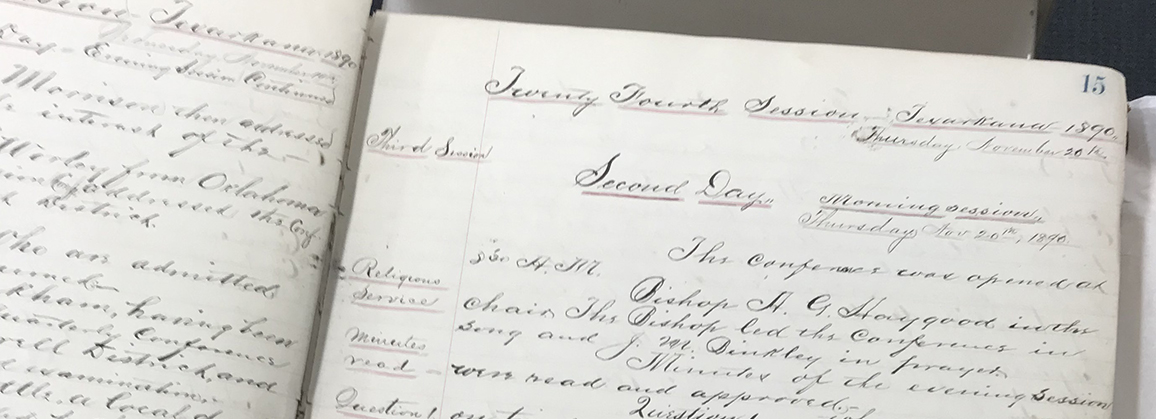Get To Know Lillie R. Jenkins, North Texas Conference Archivist

More than documenting the business and records of an annual conference, the role of conference archivist is one of connection, charged with preserving a conference’s history and heritage to serve as a jumping off point for the church’s future. On August 1, the North Texas Conference welcomed Lillie R. Jenkins into the role of North Texas Conference Archivist, as Frances Long moved into the role of archivist emeritus.
Jenkins is a member of St. Luke “Community” UMC and holds degrees including a Master of Arts in communication and social psychology from the University of Georgia, .a Master of Science in information science from the University of North Texas and a doctorate in communication from The Ohio State University.
An independent researcher, Jenkins writes on media studies, genealogy and literacy. She is currently researching the multiple literacies represented in her family's hand-stitched quilts.
Jenkins recently connected with Monica Frazier of the NTC communications team to share more about what brought her to a love of history and preservation, as well as her hopes and plans in her new role.
How did you first become involved in archive work?
I am a professional librarian with a doctorate in communication, so I love libraries and archives. I try to visit local cultural heritage sites, including libraries and archives, wherever I go on vacation. I compare how each locality provides access and information to their users, trying to pick up 'insider' tips I may use. The first time I personally used archival information, I authored a family history project in the early 2000s. I visited the National Archives in Washington, D.C., to do some research in an attempt to corroborate and fill in details in some of the family stories my siblings and I were exposed to as children.
What projects are inspiring you right now?
Projects that teach local historians and archivists about gathering local history, disaster preparedness and conservation. These projects inspire me greatly because cultural history lost is everyone's loss. Archival records and cultural heritage lost through natural disaster (fires, hurricanes, tornados, floods, pest damage, etc.) and through neglect means there are holes in the record. Nature abhors a vacuum, so our record becomes vulnerable at such times. The process of instructing local historians in methods and means for gathering, preserving and giving access to the history of a locale is empowering and inspiring. The hope is to provide a set of very basic research tools that guard against a potential loss that could destroy a church's history along with the physical church building.
Why is it important to preserve our churches’ histories?
Church history is especially valuable as it tracks the course of humanity's connections to and encounters with The Divine. Humanity has had individual and corporate experiences with our Creator that are worth preserving and sharing. As Kent Roberts reminds me, "local churches are also the home of close, in-person social networks. In many communities, large and small, they are the primary social network."

What are you most looking forward to as the new conference archivist?
Many conference archivists and historians have come before me. They worked as they were led — to perpetuate church history. I humbly enter into that stream and will allow God to move me to work as diligently as they did — to perpetuate the record and to enable church members and researchers to discover that record.
What should someone do if they want to get involved in preserving and telling their local church’s story?
Every project and each historian's level of knowledge, as well as the depth of desired historical coverage, will determine how that specific project unfolds. That said, each person will have to make decisions about the scope of their project and about available time and resources before starting the work.
If you know someone who is interested in learning about and/or providing access to local church history, I can suggest one path (of many) a person might take to get started. First, I would suggest that the person participate in the local church historian's training course that the General Commission on Archives and History offers. The course is available as a live class or as self-directed study.
Also, one might benefit from reading some of the church histories written by Methodist historians of note. I've just been introduced to Bill Sanderson's book, A Journey of Faith and Friendship: Pleasant Mound Methodists. I find it accessible and well-written. Books like this provide insight into the reasons people write and show various ways to collect local church history. Mr. Sanderson gives details about his research journey that every local church historian will find useful.
Finally, I encourage active participation in a local history group or conference historical society. One might even join the local or county historical society. In such gatherings, one finds people who have knowledge about and experience conducting local history projects for the church and for the community. Often these kindred spirits are more than willing to tutor and nurture a 'newbie.'
Anything else you want to add?
We have some new and exciting activities planned, some of which are available relatively soon, such as archival reference services. Reference services are provided most often via email requests. Submit requests to either: archives@ntcumc.org or to walker@ntcumc.org.
In addition to the reference services available now, some archival services are under development. Items slated for a future date include enhancements to reference services whereby we make core church archives available online and update the Finding Guide for the Collections at the North Texas Conference Archives. Farther out are nascent plans to offer local church historians short, one-day training sessions covering the basics of archival processing.
I look forward to meeting each person who has an interest in researching North Texas Methodism, with emphasis on historic churches. Be sure to contact me at the North Texas Conference Archives, soon.
Published: Wednesday, October 19, 2022
